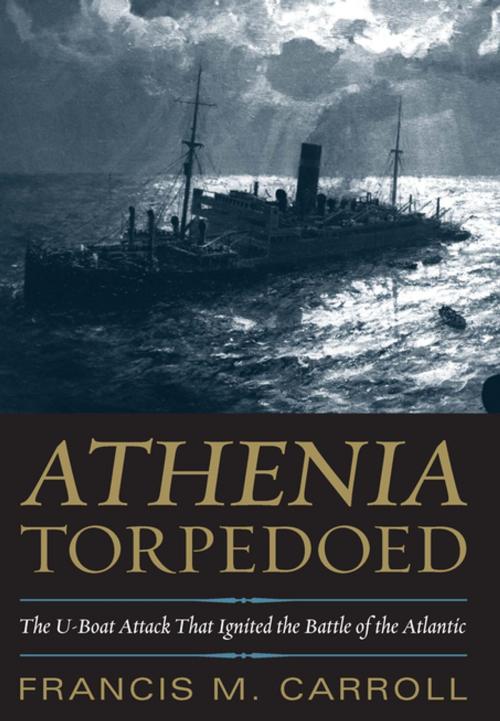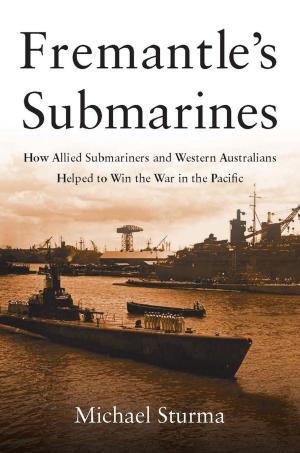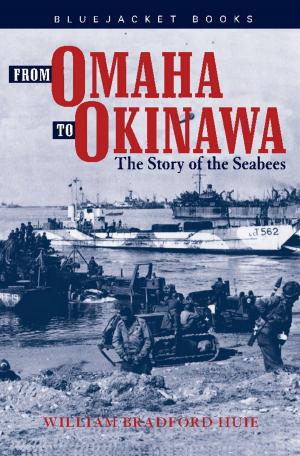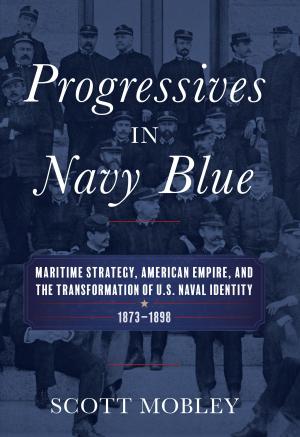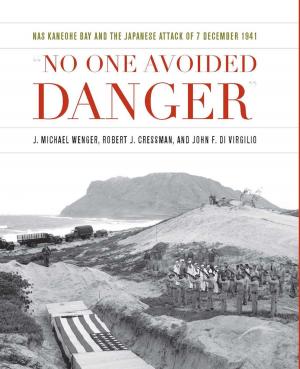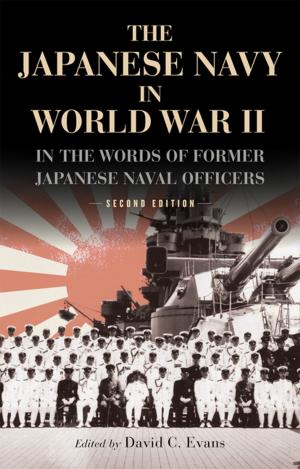Athenia Torpedoed
The U-Boat Attack that Ignited the Battle of the Atlantic
Nonfiction, History, Military, World War II| Author: | Francis M. Carroll | ISBN: | 9781612511559 |
| Publisher: | Naval Institute Press | Publication: | October 15, 2012 |
| Imprint: | Naval Institute Press | Language: | English |
| Author: | Francis M. Carroll |
| ISBN: | 9781612511559 |
| Publisher: | Naval Institute Press |
| Publication: | October 15, 2012 |
| Imprint: | Naval Institute Press |
| Language: | English |
This book is an account of a disaster at sea, the sinking by a German submarine of the passenger liner Athenia sailing from Liverpool to Montreal, loaded with Americans, Canadians, and Europeans, attempting to cross the Atlantic before the outbreak of war. Although 112 people were lost, of whom 30 were the first Americans killed in the war, 1,306 were rescued. Housewives, children, college students, scientists, actresses, and Jewish refugees were among the victims, and even young John F. Kennedy was called on to give assistance. The drama, tragedy, and triumph of their experiences are a central part of the story. But of course the book is also about war and politics. Indeed, this is actually where the Second World War began. Here Germany, having already invaded Poland in what was expected to be a limited war, first struck the western Allies, Britain and France. This was the first blow, fired without warning, just hours after war was declared. For Britain, the sinking of the Athenia was seen as both a violation of international law and a return to the kind of total war Germany had waged in the Great War. The sinking of the Athena immediately pushed Britain to adopt convoys to protect shipping, and it served from the first to shape British public opinion toward the war. In Canada the sinking of the ship and particularly the death of the innocent, ten year old Margaret Hayworth, became emotional issues around which much of the nation could rally in support of the decision of Parliament to go to war. In the United States President Franklin D. Roosevelt was too wary to make the sinking of the Athenia the counterpart of the sinking of the Lusitania in the First World War. However, the Athenia exposed Germany in the public mind as a serious threat to Americans, and provided the opportunity for President Roosevelt to open direct communication with Winston Churchill. The Athenia helped to change public opinion in the United States sufficiently to amend the existing Neutrality Laws to allow the country to sell munitions and supplies to Britain and France-a supportive first step to meeting the Nazi threat directly. So the sinking of the Athenia is a tale full of meaning and passion that deserves to be known.
This book is an account of a disaster at sea, the sinking by a German submarine of the passenger liner Athenia sailing from Liverpool to Montreal, loaded with Americans, Canadians, and Europeans, attempting to cross the Atlantic before the outbreak of war. Although 112 people were lost, of whom 30 were the first Americans killed in the war, 1,306 were rescued. Housewives, children, college students, scientists, actresses, and Jewish refugees were among the victims, and even young John F. Kennedy was called on to give assistance. The drama, tragedy, and triumph of their experiences are a central part of the story. But of course the book is also about war and politics. Indeed, this is actually where the Second World War began. Here Germany, having already invaded Poland in what was expected to be a limited war, first struck the western Allies, Britain and France. This was the first blow, fired without warning, just hours after war was declared. For Britain, the sinking of the Athenia was seen as both a violation of international law and a return to the kind of total war Germany had waged in the Great War. The sinking of the Athena immediately pushed Britain to adopt convoys to protect shipping, and it served from the first to shape British public opinion toward the war. In Canada the sinking of the ship and particularly the death of the innocent, ten year old Margaret Hayworth, became emotional issues around which much of the nation could rally in support of the decision of Parliament to go to war. In the United States President Franklin D. Roosevelt was too wary to make the sinking of the Athenia the counterpart of the sinking of the Lusitania in the First World War. However, the Athenia exposed Germany in the public mind as a serious threat to Americans, and provided the opportunity for President Roosevelt to open direct communication with Winston Churchill. The Athenia helped to change public opinion in the United States sufficiently to amend the existing Neutrality Laws to allow the country to sell munitions and supplies to Britain and France-a supportive first step to meeting the Nazi threat directly. So the sinking of the Athenia is a tale full of meaning and passion that deserves to be known.
